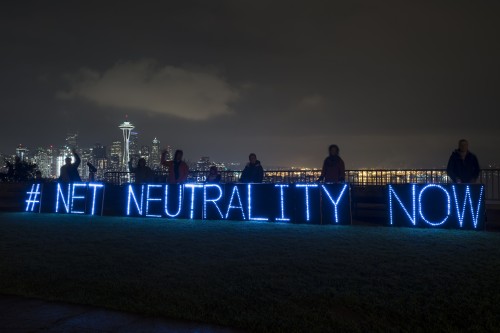A “godless science-researcher” wrote an impassioned, humane post about the murder of Avijit Roy, who was his friend.
Hacked to death. Hacked. To death. Two living, breathing human beings, returning home after their day’s work, set upon by murderous assailants who dragged them to the pavement and hacked away at them with machete-like sharp instruments. Two human beings, a man who has succumbed to his deadly injuries, and a woman, who sustained severe injuries to her hands and forehead as she tried to protect her companion. Two human beings, my friend and his wife.
It is particularly horrifying. It’s all too easy to imagine what it would be like.
Bangladesh-born, resident of suburban Atlanta in the state of Georgia, and an engineer by profession, Avijit has consistently been a prominent voice for reason and free thought, denouncing religious extremism and intolerance. I haven’t had the pleasure of being acquainted with his wife, Rafida Ahmed Bonya, but from common friends and acquaintances, I gathered the impression that she was his perfect partner, a blogger who shared his passion for rationality. Avijit founded the Bangla-language blog Mukto Mona (“One with a Free Mind”) in 2000 to offer the Bangla-speaking freethinkers from the subcontinent and beyond a valuable platform to discuss science, reason and humanity.
I had the privilege of writing for Mukto Mona a few times. I couldn’t continue writing on relevant topics for various reasons, but it was – to my good fortune – enough to create a bond between Avijit and me. Sometime in 2012, Avijit wrote me a message on Facebook asking if I was the same person who wrote for Mukto Mona. I was elated to be so recognized – because by that time I was already acquainted with his scholarship, the books in Bangla on science and religion he had authored, and his persistent, powerful and courageous efforts to defend reason and bring enlightenment to an increasingly fractious and irrational world. We became friends on Facebook, and continued to be in touch.
We make friends in these ways, so it all becomes personal. Damn right it does.
Avijit was an avowed atheist, but the predominant theme of his writings was secular humanism, guided by reason. (If you are able to read Bangla online, do read his public Facebook note on his experience in authoring and publishing books.) He was a strong voice for opposing irrational beliefs, blind faith and superstitions, and especially reactionary fundamentalism in religion regardless of specific creeds. He also spoke out against the false equivalence between secularism and fundamentalism often drawn by so-called moderates in Bangladesh, and held them culpable for the cultural decline of that country – a country which, in a matter of decades, has turned from its scholastic traditions marked by thought and intellectual query to a regressive society where radical Islamic hardliners hold sway over public life, liberally dispensing abuse and death threats to freethinkers, atheist writers and bloggers with impunity, and in effect rewriting the cultural norms of that society to suit their ideology; a country where authorities do nothing to ensure safety of those opposed to religious extremism, where rationalist bloggers and writers have been attacked and murdered, and arrested under the odious, medieval ‘Blasphemy law’. Avijit and his daughter, Trisha Ahmed, had chronicled this painful state of affairs in a 2013 op-ed in the Free Inquiry magazine.
That’s happened in the US to some extent too – a turn away from secularism, a valorization of “faith” and goddy thinking, a rejection of rational inquiry. It’s a bad trend.
The shock of Avijit’s death – he was of my age – numbed me enough to make it difficult to get the words out. But if there is one thing that gave me courage and hope, it was the wise and intrepid words from young Trisha, who wrote: “To say that I’m furious or heartbroken would be an understatement. But as fucked up as the world is, there’s never a reason to stop fighting to make it better. I’ll carry the lessons he taught me and the love he gave me forever.” As would we, in our hearts.
Violence perpetrated for whatever reason has become commonplace in the daily lives of many societies across the world. And religion ranks amongst the highest of such reasons. A recently released report by Pew Research Center shows a global region-wise map of social hostilities around religion. Not shockingly, the Indian subcontinent features prominently as a region with very high religious hostilities in the society.
But that statistic did not hit home as much as it has done now.
It’s personal.
(This is a syndicated post. Read the original at FreeThoughtBlogs.)

